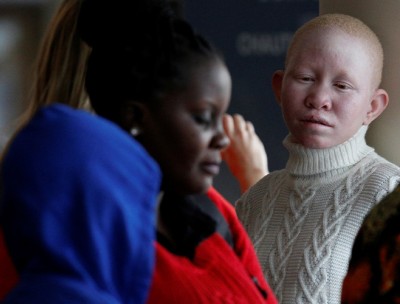The UN Independent Expert on the enjoyment of human rights by individuals with albinism, Muluka-Anne Miti-Drummond, has called for comprehensive measures to address significant disparities in access to essential services—such as education, healthcare, and employment—across the United States and Puerto Rico.
Concluding an official visit to the U.S., Miti-Drummond acknowledged positive initiatives but emphasized the need for more consistent efforts, particularly in Puerto Rico, to ensure equitable service access nationwide.
“As individuals with albinism are recognized as having disabilities, their rights are protected under the Americans with Disabilities Act (ADA). In Puerto Rico, Law 109 of 2022 aims to guarantee access to necessary medical providers and treatments for individuals with albinism and Hermansky-Pudlack Syndrome (HPS),” the Independent Expert stated.
However, she expressed concern about the inconsistencies in service access across various states, noting that the situation for those with HPS is particularly critical due to the severity of the condition and the specialized care required.
Miti-Drummond pointed out that, beyond visual impairment caused by a lack of melanin, individuals with HPS experience platelet dysfunction, which can lead to prolonged bleeding, inflammatory bowel disease, and pulmonary fibrosis, often necessitating a double lung transplant. In addition to needing care from ophthalmologists and dermatologists, they may require hematologists and gastroenterologists, with those affected by HPS1, the most common type in Puerto Rico, needing pulmonologists.
“These necessary services are financially inaccessible for many individuals with albinism who lack adequate medical insurance, compounded by a shortage of qualified professionals and lengthy waiting times that can extend beyond six months,” she added.
Miti-Drummond also highlighted the lack of disaggregated data regarding albinism across various sectors—healthcare, education, employment, and immigration—making it difficult to accurately assess the challenges faced by individuals with albinism.
She urged authorities to address privacy concerns surrounding data collection while ensuring the implementation of appropriate data protection measures. “Without proper disaggregated data, it is impossible to identify the prevalence of albinism, understand its distribution, and ultimately respond effectively to the challenges these individuals face, including adequate budget allocation,” she stated.
The Independent Expert is set to present a comprehensive report on her findings to the Human Rights Council in March 2025.





















0 Comments